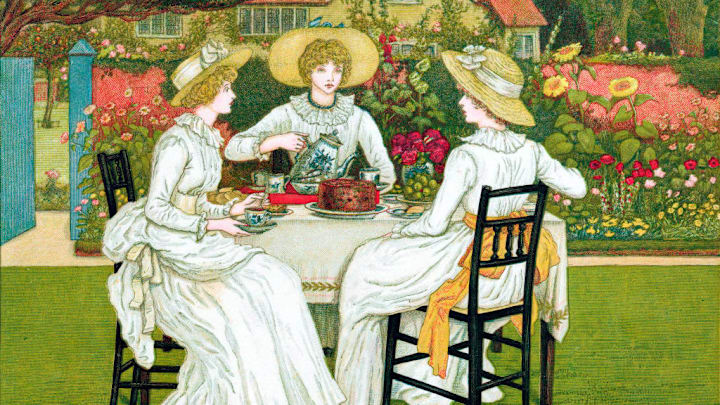If you were a woman in the 19th century, virtually anything you did during the course of a normal day—including drinking tea—might be seen as a reason to have you admitted to a psychiatric facility for help.
NHS Grampian Archives, a group that collects and maintains the historic archives of more than 100 hospitals and health organizations from the region around Scotland’s Grampian mountains, dug up an admissions record from what was known as the Aberdeen Lunatic Asylum while looking into the institution’s annual reports from the 1840s. The table contains data on causes of admissions categorized by sex. In addition to those admitted to the facility for “prolonged nursing,” “poverty,” or “disappointment in love” (one man and one woman admitted for that one!), one woman seeking medical help for what appeared to be delusions saw her issues blamed on her “sedentary life [and] abuse of tea.”
Someone at the archives who was intrigued by the diagnosis managed to track down more details on the patient in question and posted the case notes on Facebook. Naturally, the patient’s condition involved more than throwing back a little too much Earl Grey. Elizabeth Collie, a 34-year-old factory worker, was admitted to the mental health facility in November 1848 after suffering from delusions (specifically, delusions about machines).
Her files state that Collie imagined “that some species of machinery has been employed by her neighbors in the house she has been living in, which had the effect of causing pain and disorder in her head, bowels, and other parts of the body.”
Hospital employees noted that ”no cause [for her condition] can be assigned, except perhaps the excessive use of tea, to which she has always been much addicted.” Collie finally left the hospital more than six months later, in June 1849.
A letter to the editors of The British Medical Journal in 1886 suggests that the suspicion of women’s tea-drinking habits was not unique to mental health institutions in the Aberdeen area. One doctor, J. Muir Howie—who once served as a regional president for the Royal Medical Society of Edinburgh, which means we can assume he was a relatively well-respected doctor—wrote the following to the publication:
”Would you kindly allow me to draw attention to the fact that, among women at least, the abuse of tea frequently leads to the abuse of alcohol! My experience in connection with a home for inebriate women has led me to this conclusion. Many of the inmates, indeed, almost all of them, were enormous tea-drinkers before they became victims to alcoholic dipsomania. During their indulgence in alcohol, they rarely drink much tea; but, as soon as the former cut off, they return to the latter. In many instances, alcohol was first used to relieve the nervous symptoms produced by excessive tea drinking.”
Ah, women. So susceptible to mania and vice, seemingly since the dawn of time. Truly, it’s a miracle that any of us stay out of the madhouse.
Read More Weird History Here:
A version of this story ran in 2020; it has been updated for 2024.
